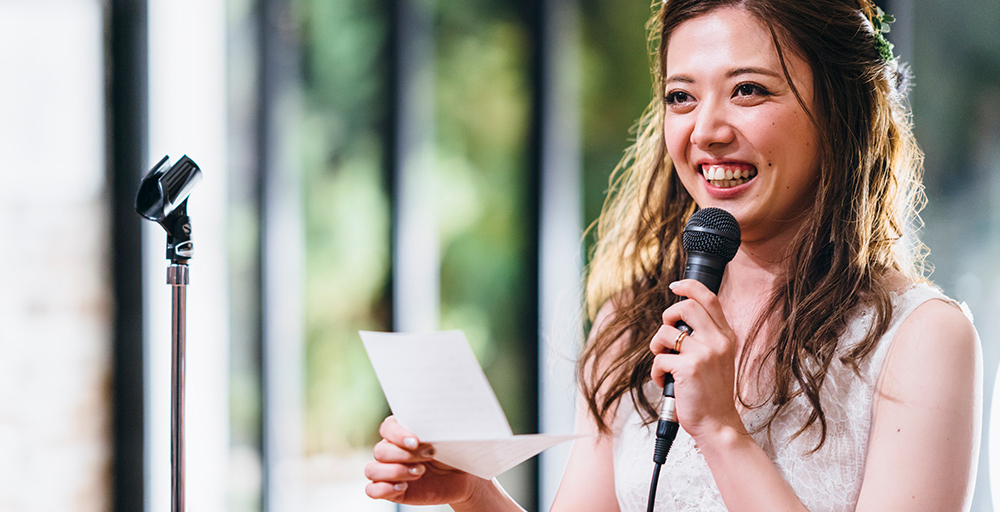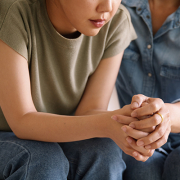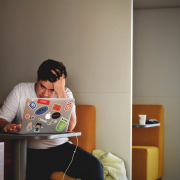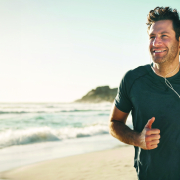Do you suffer from social anxiety, or are you just shy?
If you went out onto the street, stopped the first person you found and asked them what the difference is between social anxiety and shyness, there’s a good chance you’d be there awhile.
There’s nothing wrong with that. Most people don’t know the difference. In fact, some people even use social anxiety and shyness interchangeably, but that’s wrong.
Social anxiety is a serious disorder that can affect your quality of life to a point where you have to change the way you live. Fortunately, anxiety counselling can help!
What is anxiety?
Shyness is a personality trait. If you’re shy, it’s part of your personality, a characteristic. It’s the same as saying you’re a calm, helpful or honest person.
That’s not to say there’s no similarities between the two. In fact, they share a number of the same physical symptoms, such as sweating or blushing.
Case study: the ‘dreaded’ wedding speech
Picture this: you’re at an important gathering, let’s say a wedding. You’ve been asked to deliver a speech in front of 100 guests, all eager to hear what you’ve got to say.
As you stand up, everybody looks at you. Your palms begin to moisten, your heartbeat starts to race and you feel a horrible, nervous ache in your gut.
Your voice is shaky as you deliver the first few sentences, and you become very aware of everything you’re doing, hyper-conscious of every panicked breath you take.
After five minutes of holding the audience to your attention, your speech comes to an end. You breathe a sigh of relief and enjoy the applause given to you.
Now, you might have been dreading this speech for weeks. It’s not your normal gig. You’re relieved it’s over, and you’re happy that it went well, and that’s that.
The key point is you managed to do it: you stood up in front of others, delivered a speech and moved on. That’s a shy person.
Now, if you had social anxiety, there’s a good chance you’d have missed the wedding. Even if you made it, you most likely wouldn’t have made the speech. And even if you did somehow manage to give the speech, you’d be left scrutinising it long after you’d finished, focusing on the smallest of mistakes (as you saw them) and – as you scrutinise yourself more and more – allowing them to eat away at you.
Functioning, intensity and avoidance
So, now you know there’s a real difference between social anxiety and shyness, but how can we distinguish the differences in any scenario – not just a ‘wedding speech’?
That’s easy: with functioning, intensity and avoidance.
Social anxiety disorder can be distinguished from shyness by how much it impairs your functioning in day-to-day life. For example, there’s letting something enter your thoughts throughout the day, and there’s letting it stop you from functioning at the level you normally would.
The intensity of your feelings is another distinguisher. For example, there’s being worried about doing something, and then there’s being outright terrified.
The third distinction is the level of avoidance you have towards the fear of a situation that’s paralysing you. Social anxiety disorder can make you avoid what others (and even yourself) would describe as normal day-to-day occurrences, like grocery shopping, ordering a coffee or catching up with friends.
What are the symptoms of social anxiety disorder?
You’re now aware that social anxiety is a disorder, that shyness is a personality trait, and that they share similar symptoms.
You also know three distinguishing features of social anxiety disorder that can be applied to every day scenarios.
Now, we look at social anxiety disorder and its symptoms, which fall into three categories: emotional, behavioural and physical symptoms.
Emotional and cognitive symptoms:
- Anxiety in anticipation of an activity you’re scared of
- Expecting the worst possible consequences from a bad experience during a social situation
- Fear of physical symptoms that may cause embarrassment, like blushing, sweating
- Fear of situations in which you may be judged negatively
- Fear that others will notice that you look anxious
- Intense fear of interacting or talking with strangers
- Intense fear or anxiety during social situations
- Worry about embarrassing or humiliating yourself
Behavioural symptoms:
- Scrutinising your performance and finding flaws in your interactions after social situation
- Avoiding doing things, or speaking to people, out of fear of embarrassment
- Avoiding situations where you may be the centre of attention
Physical symptoms:
- Blushing
- Feeling dizzy
- Fast heartbeat
- Feeling that your mind has gone blank
- Muscle tension
- Sweating
- Trembling
- Trouble catching your breath
- Upset stomach or nausea
Importantly, we can’t identify with these symptoms in isolation of the features of social anxiety disorder we touched upon earlier – functioning, intensity and avoidance.
Hopefully you are also starting to understand why using social anxiety as a label to describe shyness is wrong, especially for those living with social anxiety disorder.
How can you deal with social anxiety disorder? An introduction to counselling for anxiety
Social anxiety disorder can make you feel like you have no control over your life, but anxiety counselling offers numerous effective treatments to help you manage symptoms.
Common treatments include:
- Psychotherapy
- Anxiety management techniques
- Social skills training
- Support groups
- Medication
- Lifestyle changes
Psychotherapy
Psychotherapy is a common treatment method for people struggling with social anxiety disorder. It can also apply to manage other mental health conditions. The most common psychotherapy used to treat social anxiety disorder is cognitive behavioural therapy (CBT). With CBT, you work with a psychologist to identify unhelpful thinking patterns and reprogram them. The goal of CBT is to change these unhelpful thinking patterns that are causing or contributing to your social anxiety.
Anxiety management techniques
There’s lots of anxiety management techniques out there that can help to reduce or control symptoms of social anxiety disorder. People with social anxiety may find themselves hyperventilating – a type of rapid breathing that can leave you feeling breathless and in turn worsen the anxiety. To manage this, take slow, deep breaths from the abdomen, rather than the chest. This can help calm you down and reduce your feelings of anxiety.
Social skills training (SST)
If you don’t get treatment early for your social anxiety disorder, you might develop deep habits that make it more difficult when you start your recovery. Social skills training can help in this department, especially when it’s combined with other forms of psychotherapy, such as CBT, which it often is.
The concept behind social skills training is simple: identify the social problem, set development goals, work towards the goals and put your new skills into practice.
Support groups
Support groups are great for connecting with people who understand, and are experiencing, the same struggles as you. These groups can be accessed in person or online and are an empowering way for you to share your experiences with people that you may not know personally, but that you know understand all too well what you’re dealing with and the challenges you’re facing. They’re also good for finding new ways of coping with social anxiety disorder, not to mention for getting used to being around groups of people.
Lifestyle changes
Research suggests that lifestyle changes can make a big difference to your social anxiety when they’re coupled with other treatments. Making sure you’re getting enough sleep; eating a healthy, balanced diet; getting enough exercise; avoiding alcohol; and limiting, or avoiding, caffeine, can make a real difference. Another way to help your social anxiety is with a healthy diet. It’s common knowledge that eating a healthy, balanced diet is good for your physical health, but it can also work wonders for your mental health.
Medication
In some cases, a medical practitioner may recommend medication in addition to psychological treatment. Remember, you should only be prescribed medication by a registered medical professional. Do not self-medicate. If you self-medicate, you run the risk of incorrect self-diagnosis, potential adverse reactions, worsening of the condition and more.
Can a psychologist help with anxiety? Take the next step with anxiety counselling
If you are suffering from social anxiety disorder and feel ready to talk about it, then take a look at our team of registered and provisional psychologists near you. We have over 80 practitioners nationwide, including many who specialise in anxiety counselling and treatment.
Alternatively, if you have any questions about Access Psych and what else we can do for you, visit our Frequently Asked Questions page.
When you’re ready, you can book an anxiety counselling appointment online, speak to one of our friendly team on 1800 277 924 or email info@accesspsych.com.au.
The information provided in this Blog general in nature and is intended to be used for information purposes only. While we have tried to ensure the accuracy of the information published, no guarantee can be given that the information is free from error or omission or that it is accurate, current or complete.
The information published is not, and should not be relied on as, health or treatment advice. The diagnosis and treatment of any mental illness requires the attention of a physician or other properly qualified mental health professional. If you are seeking diagnosis or treatment of any other mental illness, you should consult a physician or mental health professional. You should not delay in seeking, or disregard, professional health advice because of something you have read in the Blog.







